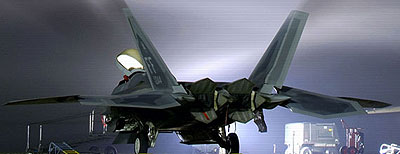From Blue to Green
Some folks that drop by the Evangelical Ecologist are surprised to find out I'm a Navy environmental scientist. "Didn't know the military even had environmentalists!" is an email I get a lot.
I mention this as a disclaimer ahead of the Q&A session that follows below.* But secondly, I understand where they're coming from. Since its inception our military has had a great track record of doing good things. But as an industry over the past half-century or so, it's also had a rather notorious reputation for environmental problems, and a lot of it well deserved.
As the country tuned into environmental stewardship in the '70's, the military (along with the rest of U.S. industries) got its wakeup call. Mostly through fines and notices of violation that tied up military lawyers and base commanders in paperwork and depositions and expensive fines and cleanups, but through public relationship nightmares and legitimate health issues too.
After two decades and hundreds of millions of dollars in cleanup and disposal costs, military minds decided to find a better way. The 90's became the Pollution Prevention decade. Every military base around the world dug through its repair shops and hazmat storage lockers to find more eco-friendly ways of doing business. DoD loaned its green ideas to other industries and began working with communities surrounding military areas, influencing the country the way President Clinton and others had envisioned.
Today, making military ecology more effective (and cheaper for taxpayers!) is a priority. Recycling is a great example. At the urging of blogger Rebecca Carter, Greener Mag's Harlan Weikle tracked down Eric Vichich, the Recycling Program Coordinator at MacDill Air Force Base at the recent Recycle Florida Today conference. Harlan suggested I get with Eric mano y mano and see what the boys in blue have been up to. Setting aside any friendly rivalries (Go Navy - Beat Air Force!), here's our Q&A. I think you'll be surprised at some of his answers.
***
DB: Why did MacDill get into the recycling business, and how long has the base been recycling?
EV: MacDill began its recycling efforts in 1993. Several reasons guided the base decision, including a realization of the potential cost-avoidance, new policy direction from Air Force headquarters, and the desire to implement a program promoting environmental stewardship that would contribute to improving MacDill’s overall environmental ethic.
DB: What sorts of items are typically recycled, and about how much of each? Are there things you'd like to recycle but can't? Why not?
EV: MacDill currently recycles cardboard, office paper, mixed paper, newspaper, plastic, glass, aluminum, metal, tires, yard/wood waste, JP-8(fuel), oil, antifreeze, universal waste (several types of batteries, fluorescent lamps, mercury containing devices), toner cartridges, biosolids (WWTP), fats and bones from Commissary, used cooking oil, concrete and asphalt.
Materials listed by weight (annual average)
- 8000 tons concrete and asphalt (crushed and reused on base)
- 2000 tons cardboard
- 220 tons JP-8/oil
- 212 tons yard and wood waste
- 200 tons paper
- 120 tons tires
- 100 tons metal
- 100 tons biosolids
- 32 tons newspaper
- 20 tons used cooking oil
- 5.5 tons plastic
- 4 tons glass
- 3.5 tons aluminum
- 8 tons universal waste
- 500 toner cartridges
As for items that aren’t currently recycled, I am investigating the feasibility of including organics (food waste) and packaging paper from housing, and plastic stretch/shrink wrap from incoming deliveries. We are lucky to be in the large metropolitan area of Tampa Bay, so there is usually a purchaser for just about any commodity we have. The only limits to the program are when activities become cost-prohibitive. For example, our office areas only have curbside service for paper. To recycle aluminum, plastic, etc. employees must transport their own materials to one of the collection centers around base. It would not be cost-effective to add another pick-up day for non-paper recyclables.
DB: How do you think MacDill compares to the rest of the Air Force and the rest of the military as a whole? How about as compared to an equally-sized industrial corporation? Way above average? About average? Making up for lost ground?
EV: The Air Force and the overall military do a pretty good job at recycling. There are Executive Orders, Air Force Instructions and CFR’s (federal regulations) that require it, so there are plenty of bases and installations that are experienced and working to further improve their programs. MacDill is better than average. There are areas where MacDill excels and can serve as an example to others, and there are areas where we are trying to improve by learning from installations successful in those areas. Our base was the recipient of the “DoD Outstanding Installation Award” bestowed by Recycle Florida Today in 2002 to recognize the continued efforts of the base to improve the scope and quality of our recycling program. MacDill routinely meets and surpasses the DoD target of 40% waste diverted from landfill/incinerators without counting the concrete and asphalt that is recycled. A main difference between us and some other bases is that we don’t process any materials on site. All of our recyclables are collected and sent to a processing site. Bases that process their own commodities are able to sell them at a premium because the product is clean, baled and stored long enough for them to accumulate a large quantity. We don’t get paid as well for our commodities, but we don’t have to worry about equipment maintenance and paying contractors to sort, process and market the material.
There aren’t many corporations to which we could be compared. We act more like a small city than a large corporation. We have industrial facilities, but we also have an airport, residential areas, a supermarket, marina, fitness center, movie theater, etc. Compared to similar sized cities, we are doing an excellent job with our waste minimization and diversion efforts. It helps because just about everyone working or living in our “city” answers to the Wing Commander. In a military situation, if a commander says “We need to do this,” then typically it gets done. MacDill, however, is a rather unique base for the Air Force in how many tenant organizations we have. In addition to Air Force personnel, we have several organizations representing all branches of the military and other federal and state organizations, all with their own unique rules, regulations and chains of command. It can be difficult to institute base wide policy when everyone answers to a different commander. In the end though, if they want to stay on our base, they have to follow our rules.
DB: Does MacDill use Air Force personnel to do recycling or do you use contractors, or a little of both?
EV: MacDill is using contractors for lots of the daily operations around base. I am actually a contractor working under the broad civil engineering contract. Currently, MacDill has a specific waste and refuse contract to handle 95% of our waste disposal needs. Some smaller contracts exist for unique items, such as fuel, oil, tires, fats and bones, cooking oil, etc. when we can work directly with a purchaser or when an item will be picked up for free.
DB: What are two things you would like these folks to know, as a USAF recycling program manager, or as a DoD environmentalist?
EV: Very interesting question. I would first ask “Why don’t you associate the military with recycling?” As for two things I would like the folks out there to know:
1) The military has stricter recycling rules than the average neighborhood and workplace.
2) The U.S. federal government is the single largest purchaser of goods in the world. The DoD is one of the largest purchaser of goods in the federal government. We are in the unique position of being able to answer the question “What difference can I make?” Well, by choosing to recycle and buy recycled products, the DoD is capable of, and successful at, creating and influencing global recyclable commodity and product markets.
***
That's 2,000 TONS of cardboard each year, folks. Sweet.
Many thanks to Eric for his time, and to Harlan for letting me post this one. If you want more info on all things "environmentally military," you've got to get over to DENIX on the Web, DoD's main eco website.
*[Also for the record, I'm not blogging in any official DoD capacity.]
by Don Bosch



8:40 PM









<< Home